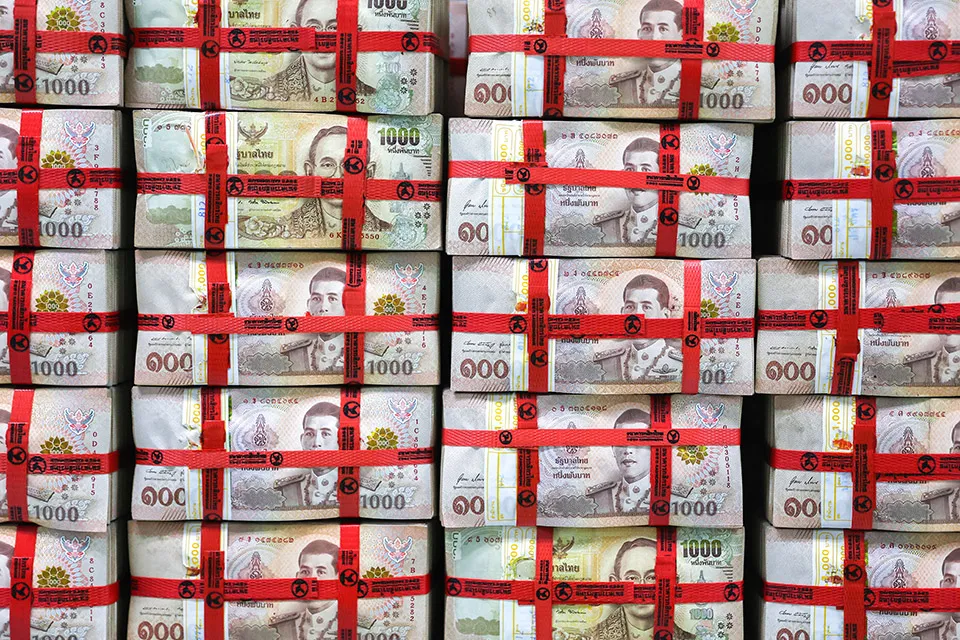An interesting social and digital experiment is set to unfold in Thailand – but it rests upon delivering a tricky election promise.
Prime minister Srettha Thavisin took power in August, perhaps assisted by an election pledge to distribute money to ordinary Thais through digital wallets. In November, Srettha spelled out how the policy would work: an outlay of Bt500 billion ($14 billion), equivalent to 3% of GDP, distributed to anyone earning less than Bt70,000 or with less than Bt500,000 in bank savings, which equates to about 50 million citizens. Each will get Bt10,000 ($280).
But there’s a condition: that money must then be spent, starting within six months of receipt, on food, consumer products and non-alcoholic beverages, and only within the recipient’s electoral districts.
The idea, therefore, is not to encourage savings but spending and economic growth. It’s classic stimulus – though perhaps oddly timed in an inflationary environment, and a measure that will widen the fiscal deficit. It’s part of Srettha’s commitment to gain pace with Asean neighbours such as Vietnam and Indonesia, which are experiencing better rates of growth.
A state-mandated handout through digital means covering almost the entire adult population of the nation is another step towards total digital inclusion
But the really interesting part of it is the digital side: the intention is to use blockchain technology through a mobile app called Pao Tang, allowing the government to trace transactions and avoid cheating, but also putting digital money and blockchain technology directly into the mainstream.
Thailand is already advanced in instant payments: this is the reason Singapore’s UOB chose to roll out its TMRW digital brand in Bangkok to see what the bank could learn before expanding it regionally. Thailand represented half of the world’s first cross-border linkage of real-time payment systems through its PromptPay platform – Singapore’s PayNow system was the other half – in April 2021.
PromptPay itself dates from 2017 and has driven digital adoption across retail and small businesses. Mobile-wallet users were forecast to reach 68 million by 2025, even before the government pledge, according to IT company Tookitaki. This is no mean feat in a country with a population of 71 million.
Still, a state-mandated handout through digital means covering almost the entire adult population of the nation is another step towards total digital inclusion.
Legal hurdle
There’s a problem, though. For the money to be disbursed and the election promise honoured, a law must first be passed to allow it. And not everyone thinks the handout is a good idea: many economists and analysts, including former central bankers, signed a petition in October urging against the payout.
The central bank, under Bank of Thailand governor Sethaput Suthiwartnarueput, does not want to stimulate consumption while it is still battling inflation, and would rather see attention spent on spurring investment. Rating agencies will be keeping a close eye on the interest burden on the budget.
Still, expectations are for the money to hit the wallets in May. And when it does, 50 million Thais will become digital banking consumers and, within six months, digital banking transactors. That’s a big step.




